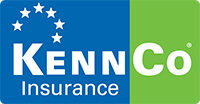Should insurance brokers and customers deal with financially unrated insurance providers?
This is a question that has been hugely prevalent in the last few years, particularly in Ireland. We’ve seen the chaos caused from the collapse of Quinn Insurance and every single insurance customer has been paying dearly for this since its collapse through government levies on all premiums. Prior to this, we saw this happen with the Independent Insurance Co., and since then we’ve had Setanta, Enterprise and more recently Alpha go into chaos. How are unrated insurance providers involved in this?
Because of the Third EU Directive, EU based insurers have far greater freedom to trade in other EU countries. In some cases, this Directive has been used in what appears to be bad faith, such as the Setanta Insurance Co. This was a company promoted by Irish businessmen, some from brokerages here but formed in Malta where the financial regulations are far less stringent than in Ireland for example. So after capitalizing in Malta, how many policies did they write in Malta? Not one from what we can figure out. They wrote all of their business in Ireland and through one network of insurance brokers, some of the same brokers thought to have invested in this company in the first place! The company had a small amount of liquid capital yet it aggressively wrote motor business in Ireland at cheaper rates than all other competitors with better cover. How can this be?
Well it usually can’t! And what should happen when a small, unrated insurer trading from the likes of Malta and/or Gibraltar is writing lots of business in another country such as Ireland? Well, it’s time to worry about those unrated insurance providers.
The only way these small insurers can write any kind of volume is by partnering with large reinsurance companies. This gives them the leverage to write a lot more business. However, it doesn’t give any extra protection whatsoever to the customer. These reinsurers have no contract with the policyholder. They are only required to pay their proportion of claims made once the insurance company remains solvent. But if this insurer goes wallop, the large reinsurance company gleefully heads off to another small insurer, without any claims to pay. They may have taken 75% of the premium from the insurance company and as long as that insurance company remains solvent, they must pay for 75% of the claims. But when the insurer becomes insolvent, the reinsurer gets to keep the premium and has no liability for the claims.
So who’s on the hook then for all claims costs?
You the customer!
Always be very wary when a small insurance company talks more about their reinsurance partners than themselves!
Neither Gibraltar nor Malta based insurers operate Compensation Funds, so when the insurer goes, so does your premium and cover.
However the recent collapse of Alpha, trading out of Denmark also brought the Danish Compensation Fund into focus.
Some Danish insurers trading in the UK and Ireland maintain the Danish Compensation Fund will fully cover customers in the event of an insurer collapse.
The Alpha collapse proved this is not quite the case to UK customers.
The Danish Compensation Fund covers against third party claims for compulsory covers only and only for a period of 4 weeks after the insurer collapse.
So this means if you’d insured your home or factory with Alpha, you’d have no protection if it went on fire.
It also means that your own car wouldn’t be covered. Even if damaged or stolen and your premium would be kept by the liquidator.
Furthermore, if you’ve caused an injury to someone without realizing it and they report their loss to you more than 4 weeks after the collapse of your Danish insurer, you’re going to be stuck with that bill.
Is this what you had in mind when you bought insurance cover for your motor, home or commercial property?
Should brokers be advising customers to save just a few euros on their insurance premium by switching to a small, unrated insurance company, be it Gibraltar, Malta or Denmark?
Too often insurance has become about price alone, rather than the quality of the provider. What’s the point in having cheap insurance when you don’t know how solvent the insurer is behind it?
Insurance customers as a rule seem to expect 5 Star Quality for 3 Star Prices. But in what other industry will you get this?
Insurance, particularly motor is a ‘grudge buy’, of that there is no doubt. It is compulsory and rightly therefore subjected to a lot financial regulation. However, because of the EU Freedom of Services, it’s very difficult for the Irish Regulators to do anything about these small insurers trading out of smaller jurisdictions.
That’s why you need to be more than just selective about which insurance company you place your cover with. Price is important of course. But not nearly as important as the financial security of the company alleging to protect your interests.
Brokers should be vigilant about this, more so than any customer because they’re in the business.
So ask the right questions of your broker the next time you get a favorable quote. Who is the insurer? Where are they domiciled? Why are they trading in Ireland and for how long? Why aren’t they prepared to be financially rated? How much cash is in the company? How do I know they’ll be around long enough to pay my claim? What guarantees can you give me about this? What do you advise me to do?
We expect insurance companies to be prudent but so should you.
For peace of mind and proper protection, why would you insure yourself with an unrated insurance provider?
Other reasons for increasing premiums are discussed in our blog here.
